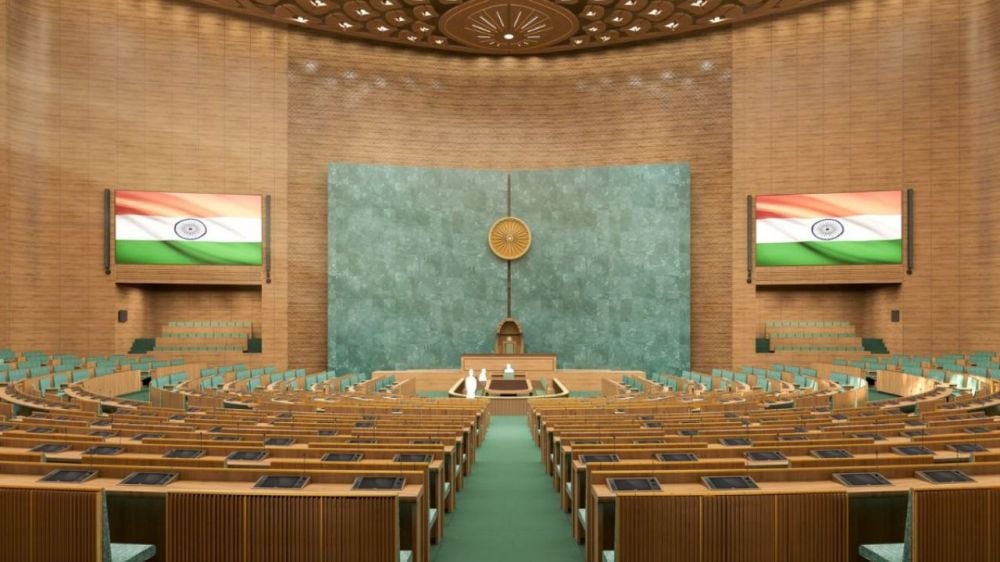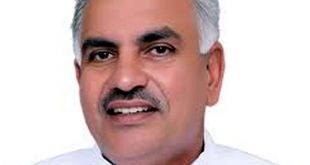
In Modi 3.0 too, Om Birla will be the Speaker of the Lok Sabha. He has been elected Speaker by voice vote. The opposition party fielded Suresh. However, the opposition itself did not demand division, so the Speaker's decision was taken by voice vote.
This is the fifth time that the Lok Sabha Speaker has been re-elected. Before Om Birla, only MA Iyengar, GS Dhillon, Balram Jakhar and GMC Balayogi have been elected Speaker for the second time. However, so far Balram Jakhar is the only one who has completed the term of Speaker twice in a row.
The post of Deputy Speaker should be given to them: Opposition
The Speaker has been selected and now it is the turn of the Deputy Speaker. The post of Deputy Speaker was vacant in the previous Modi government. The opposition demands that according to tradition, they should get the post of Deputy Speaker. However, no clarification has been given yet regarding the post of Deputy Speaker. The post of Deputy Speaker is not a constitutional responsibility. The Speaker will decide when the Deputy Speaker will be elected.
The post of Lok Sabha Speaker is a constitutional post. The most important person in the House is the Speaker. Nothing can happen in the House without the Speaker's approval. The proceedings of the House are under the Speaker's supervision. If there is no Speaker, the Deputy Speaker conducts the proceedings of the House.
The 1919 Act
In the year 1919, the Government of India Act was passed in British India. It was through this Act that the Parliament was formed. Two houses of Parliament were created under the Act. First- Central Legislative Assembly which was the lower house and second- State Council which was the upper house. The Mont-Ford Reforms recommended the creation of two houses of Parliament. In British India, the then Foreign Secretary Edwin Montagu and Viceroy Lord Chelmsford prepared a report in 1918. On the basis of this report, the Government of India Act was implemented.
Initially the Central Legislative Assembly had 142 members, of which 101 were elected, while 41 were nominated. Of the 101 elected members, 52 were general, 29 Muslims, 2 Sikhs, 7 Europeans, 7 Zamindars and 4 industrialists. Later three seats- Delhi, Ajmer-Mewar and North West Frontier Province were added. The first election to the Central Legislative Assembly was held in November 1920.
After independence, when the Indian Independence Act 1947 came into force, the Union Legislative Assembly was dissolved. After this, after the implementation of the Constitution in 1950, the name of the Central Legislative Assembly was changed to Lok Sabha and the name of the Council of States was changed to Rajya Sabha.
Thus the post of Speaker and Deputy Speaker came into existence
When the Central Legislative Assembly was formed, there was no post of Speaker or Deputy Speaker. Then they were known as President and Vice President. In 1921, the Governor General appointed Frederick White as the Speaker of the Central Legislative Assembly. Sachchidanand Sinha was elected Deputy Speaker. On 24 August 1925, elections were held for the post of Speaker of the Legislative Assembly. In that election, Swaraj Party candidate Vitthalbhai Patel defeated T. Rangachari. Vitthalbhai Patel remained in this post till 28 April 1930. After him, Mohammad Yakub became the President.
Between 1925 and 1946, six elections were held for the post of Speaker of the Legislative Assembly. The last election was held on 24 January 1946. Then Congress candidate GV Mavalankar was elected President. After independence, when the Assembly was dissolved, Mavalankar was made the Speaker of the Provisional Parliament. When the first Lok Sabha was formed on 17 April 1952, Mavalankar was elected Speaker.
Thus the posts of Speaker and Deputy Speaker came into existence. After independence, the first speaker was GV Mavalankar. Then the Deputy Speaker was MA Iyengar. After the death of Mavalankar in February 1956, Iyengar became the Speaker of the Lok Sabha. Since independence, only MPs from the ruling party or coalition have become the Speaker of the Lok Sabha. Till now, 18 Deputy Speakers have been appointed, out of which only 10 times an MP from an opposition party or coalition has got this responsibility.
 look news india
look news india
